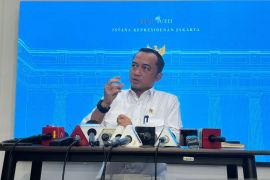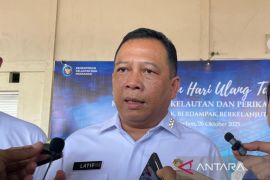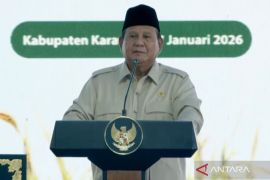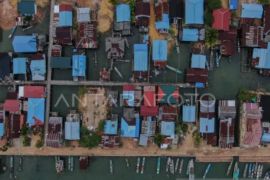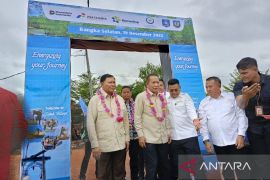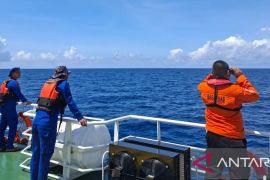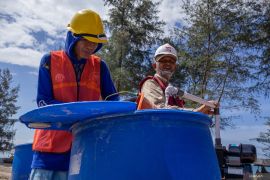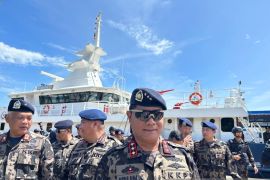Buyers are no longer just concerned with eating fish, but they are also making sure that the fish are not related to IUU fishing, they are caught in an ethical way, and aren't related to slaveryJakarta (ANTARA) - Global consumers are becoming more discerning about fishery products, including whether the fish are captured legally and ethically or not, Head of Indonesia Bachelor of Marine Science Association (Iskindo), Zulficar Mochtar, has said.
"Buyers are no longer just concerned with eating fish, but they are also making sure that the fish are not related to illegal, unreported and unregulated (IUU) fishing, they are caught in an ethical way, and aren't related to slavery," he said at a webinar entitled 'Toward a Sustainable Tuna Fish Management and Production in Indonesia' in Jakarta on Wednesday.
The change in the consumption pattern among global consumers needs to be noted considering IUU fishing practises are still rampant, he noted.
The problems facing Indonesia's fishing sector include the fact that scores of cold chain systems are located in the eastern part of nation, while much of the accommodating infrastructure, like cold storage, is situated on the west, Mochtar observed.
To this end, he highlighted the need for the involvement of all related parties and stakeholders for saving the sustainable tuna fishing industry so that people can still enjoy it for generations to come.
Also speaking at the webinar, director of fish resource management at the Ministry of Maritime Affairs and Fisheries (KKP), Trian Yunanda, said her team is in the final stages of drafting a sustainable fishing plan for tuna, skipjack, and mackarel tuna for Indonesia.
In relation to tuna, KKP has held post-harvest technology and product dissemination training on handling and rating techniques for fresh tuna, including for exports.
"This activity is very important to increase the quality of tuna commodity in Indonesia, specifically the ones that are produced in North Sulawesi province, so that it can be competitive in the export market," said director general of competitive power enhancement of maritime and fishery product at of KKP, Artati Widiarti.
The step is part of an effort to protect the productivity of tuna fish exports from North Sulawesi, a province well-known for its quality and bountiful tuna, she added.
The effort, she continued, aligns with Maritime and Fisheries Minister Wahyu Trenggono's policy to protect the quality of fisheries products, including export commodities, to ensure food safety and maintain the international market's trust.
According to KKP, there are 91 tuna fish processing units (UPI) in North Sulawesi province, comprising 58 freezing companies, 5 canneries, 1 other processing facility, and 27 companies handling fresh tuna products. Of the 91 UPIs, 56 are noted to be active, it added.
At the webinar, head of Pole & Line and Handline Indonesia Fishing Association (AP2HI), Janti Djuari, stated that his association is intending to raise awareness and introduce the global market to sustainable tuna fish from Indonesia captured using eco-friendly fishing equipment.
AP2HI, he said, has also obtained an MSC certificate in sustainable fish management on January 26, 2021.
Meawhile, tuna fishing practitioner, Her Sugandhi, said that improvement of data is key for sustainable tuna fishing.
She said a number of strategies can be undertaken for boosting tuna fish exports in Indonesia while ensuring sustainable fishing practices. She also stressed the importance of ensuring traceability in the export market.
Related news: Fishery exports could rise during pandemic: Marine Affairs Ministry
Related news: Indonesia yet to rank top among world's fishery product exporters
Related news: Minister Trenggono inaugurates two speed fishery surveillance ships
Translator: M Rahman, Fadhli Ruhman
Editor: Sri Haryati
Copyright © ANTARA 2021




